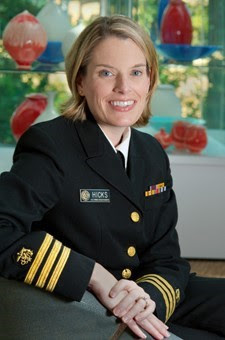
Dr. Ramanan Laximinarayan, Director and Senior Fellow at the Center for Disease Dynamics, Economics & Policy, reports some clear trends around global antibiotic use and resistance in humans, livestock and the environment and emphasizes antibiotic stewardship programs as the solution. Read more about how a strong antibiotic stewardship is the key to conserving antibiotic effectiveness.

Dr. Benjamin Park, CDC’s International Infection Control Program Chief, discusses antimicrobial resistance as a rising global concern and shares World Health Organization’s global action plan and CDC’s initiatives to combat antimicrobial resistance. Read how you can join the global fight against antimicrobial resistance.

Dr. Lauri Hicks, Director of the Office of Antibiotic Stewardship with CDC, and Maha Talaat, Deputy Director for Disease Prevention with Global Disease Detection Center in Egypt, describes their joint efforts in improving antibiotic stewardship in Egypt, where antibiotics are available over the counter. They studied what challenges providers faced with antibiotic prescribing and subsequently piloted a campaign to teach people to better use antibiotics correctly. Read more about the campaign and how it reduced antibiotic prescriptions in Egypt.
Join the conversation at: http://blogs.cdc.gov/
The Global Battle against Antibiotic Resistance
Posted on byThe prevalence of antibiotic-resistant bacteria is increasing all over the world, including the United States. In Dr. Ramanan Laximinarayan’s blog on the state of the world’s antibiotics, he shares some clear trends from his own research around global antibiotic use and resistance in humans, livestock and the environment.
Dr. Laximinarayan emphasizes that strong antibiotic stewardship in its broadest sense is the key to conserving antibiotic effectiveness. By stopping the misuse and overuse of antibiotics, we can maintain access for those who truly need them.
It is imperative that we take action to combat antibiotic resistance by taking global action. In addition to improving antibiotic use and implementing stewardship programs, we must improve laboratory capacity to guide treatment, develop national and global antimicrobial resistance surveillance systems, and improve infection control to stop resistant infections from spreading. Dr. Benjamin Park shares WHO’s global action plan and CDC’s initiatives to combat antibiotic resistance.
Some experts have begun to tackle this issue at the global front. Dr. Lauri Hicks, Director of the Office of Antibiotic Stewardship with CDC, and Maha Talaat, Deputy Director for Disease Prevention with Global Disease Detection Center in Egypt, joined efforts to improve antibiotic stewardship in Egypt, where antibiotics are available over the counter. They found that a lot of providers said that if they didn’t prescribe something, patients would just go to the pharmacy and get it. In addition, pharmacies in Egypt won’t refuse antibiotics if patients ask for them. As a result, a pilot campaign was launched to teach people to use antibiotics correctly. The campaign saw a striking reduction in antibiotic prescriptions for respiratory infections from 81% to 60.4%, proving that targeted education can translate into cultural change. Another challenge Egypt faces is understanding how widespread and what the main causes of drug-resistant infections are. Surveillance programs are crucial to provide data for prevention measures. New data allowed hospitals to improve infection control practices and reduce the number of infections by 36 percent. Egypt, like the rest of the world, still faces high rates of antibiotic resistance and there is still work to do.
Posted on by 




















.png)









No hay comentarios:
Publicar un comentario